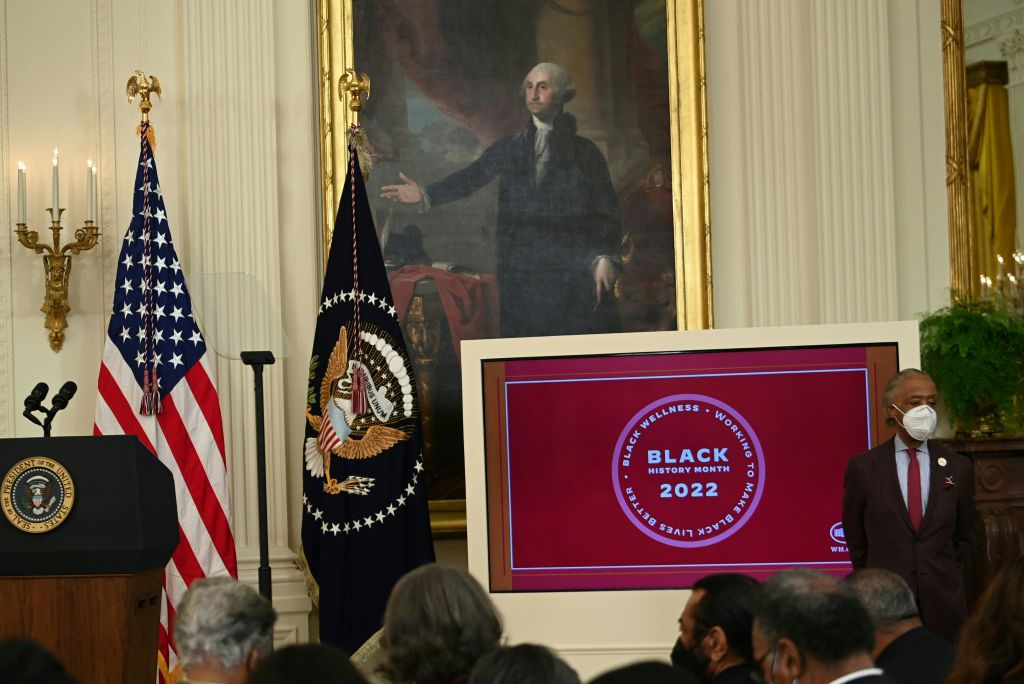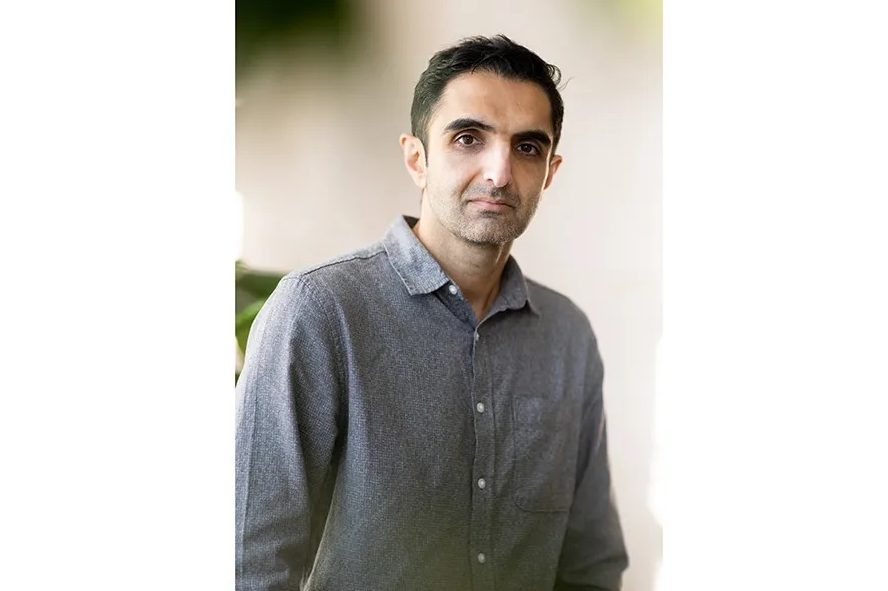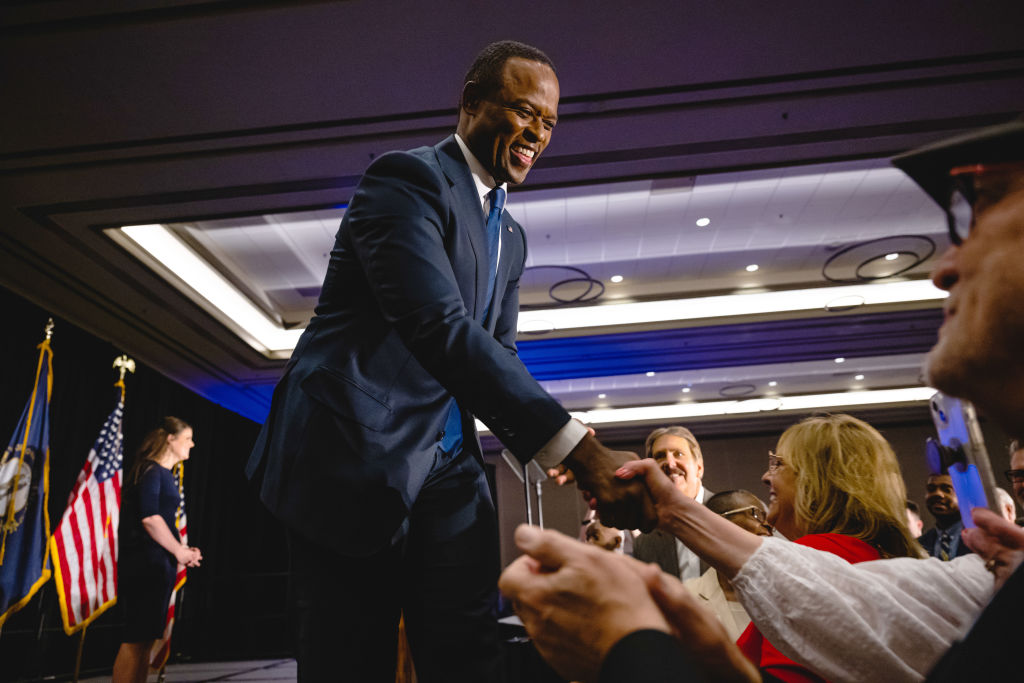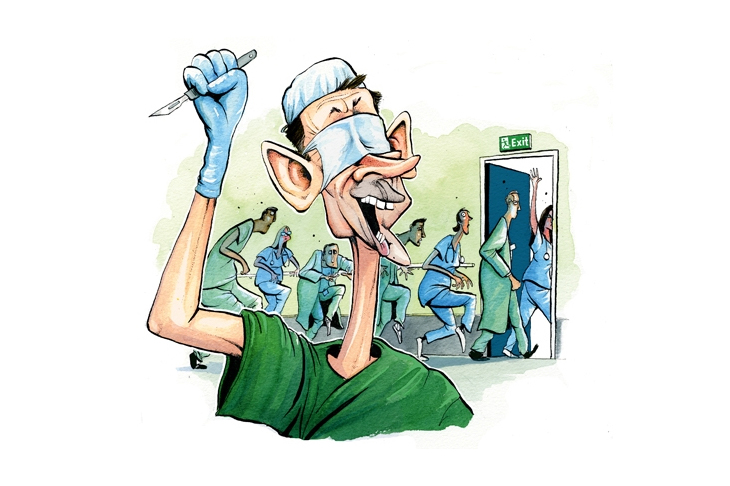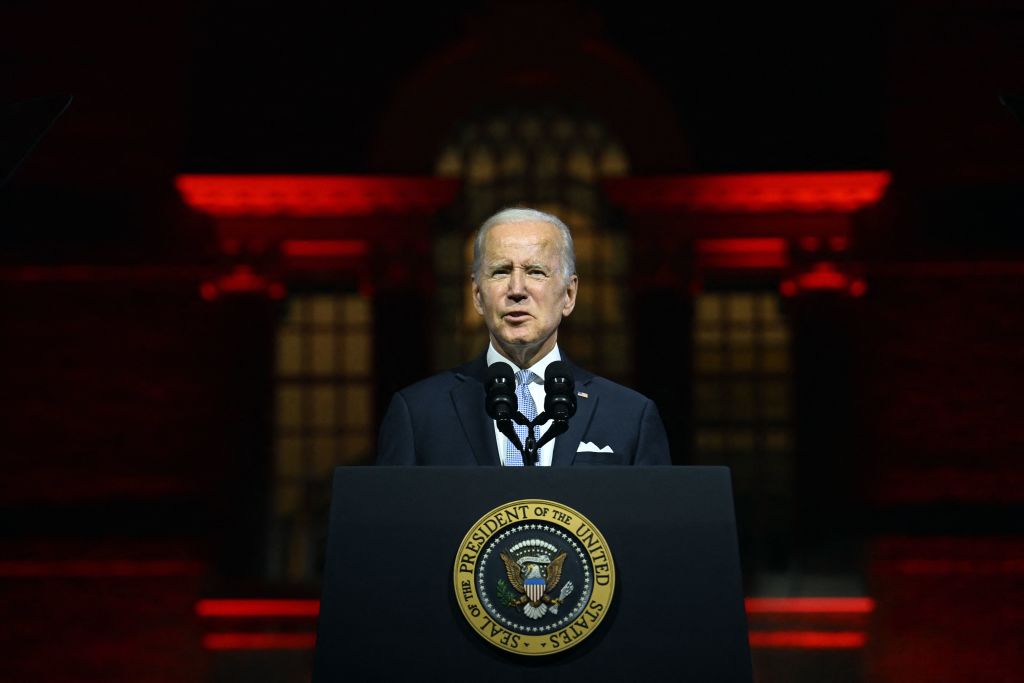Black History Month is now over, and we’ve moved on to Women’s History Month. In April, we’ll get the best of both worlds, with Black Women’s History Month. May will be Jewish-American Heritage Month, and then in June the nation will enjoy a blowout celebration of LGBT Pride Month, if the normalization (and commercialization) of the cause in recent years is any indication.
The point of all of this is to serve as an annual national re-ratification of diversity, inclusivity and equity as America’s preeminent causes (and doctrines, as Spectator World editor Matt Purple has so perceptively assessed). Everyone and their racial, sexual and gender identities are to be affirmed; all identities and behaviors are to be celebrated as an essential part of the rich panoply of our national identity. It is meant to appease, honor and even glorify. Everyone, we would think, should be made happy by the never-ending tolerance parties.
But some, apparently, are not. In a March 2 op-ed for the Washington Post, Cole Arthur Riley claims that the end of Black History Month means he can “finally breathe.” The problem, says Riley, is white people (surprise!). Riley explains:
Every year, what is intended to be a time of remembrance and storytelling becomes a month of additional labor — usually with very little notice — for Black people. It becomes a season when we must sell our stories and ideas to sate the appetites of White folk who want to feel as though they’ve done the right thing.
The problem, according to Riley, is that guilt-ridden white people are so zealous in their desire to hear and understand black voices that it becomes overwhelming for black Americans.
Turns out that Black History Month is not a happy time for those it is intended to honor. Riley notes that many black Americans are asked to speak on their history “for little or no pay, in exchange for what we hope will be career capital down the road. That is: A month meant to celebrate Black liberation winds up being a new form of indentured servitude.” What is intended as a time to commemorate how far America has come is actually a reminder that, apparently, our nation is still keeping its black citizens in semi-bondage (though I would think Riley and those he describes are in a position of strength from which they could demand more compensation).
There is a “white leech on Black History Month,” says Riley. The best way to honor Black History Month, he says, is to extricate himself “from the demands and temptations of the White gaze.” Riley is not alone in his feelings of exhaustion dealing with white people trying to understand and honor blacks. A February article at Education Week urges whites to avoid making themselves the center of Black History Month.
Washington Post columnist Karen Attiah in a June 2020 op-ed complained about the frustrating burden of “distraught white and non-black friends who were overwhelmed with guilt and anxiety” because they might be sub-consciously perpetuating racist norms or power structures. White people simply can’t seem to get it right when it comes to showing the proper honor or deference to their black fellow citizens.
Indeed, for any white American trying to show proper deference or respect for black Americans, during Black History Month or during the other eleven months of the year, it’s a bit like trying to cross a minefield. If one tries to be “colorblind” or signals that he doesn’t care about the color of people’s skin, he perpetuates systemic racism by refusing to recognize and appreciate others’ identity and value. If a person goes out of his way to express interest in trying to understand the black experience in America, this also is problematic, because this could impose unfair burdens on blacks who tire of explaining all of this to ignorant, if well-meaning, whites. Whatever white people choose, they are bound to offend or upset someone.
Nor are whites the only losers. According to Riley, Attiah and many others, blacks too are losers. Somehow a month aimed at celebrating black agency ends up undermining it, regardless of the anybody’s motives. What is supposed to invigorate feelings of pride and inclusion end up eliciting anger and fatigue. Counterintuitively, given our nation’s unprecedented levels of engagement with racial issues in recent years, black Americans also feel shortchanged.
Perhaps it was inevitable that this would happen, given the mainstreaming of “Oppression Olympics,” in which everyone in American society participates in a competition to determine who is the most victimized according to race, gender, sexual identity, socioeconomic status or disabilities. Everything, from advertising to sports to literature to entertainment is now influenced by a game that was once largely relegated to liberal activist groups and academic seminars. It is one in which participants are encouraged to discover ever more novel and obscure ways in which they suffer victimization (e.g. microaggressions, unconscious bias) from bigoted, oppressive power structures. By these rules, people win by losing.
It should be fairly obvious that the victimhood game is not one that fosters social or political cohesion. The underlying objective is actually to attenuate differences and tensions between various identity groups, classes and broader society. Even when one group tries to help and understand another that is more “oppressed,” this can easily be construed as a cynical ploy to salve a guilty conscience, re-center the norms of “white experience” or one of an ever-growing (and more creative) means of making everything worse (e.g. so-called “white fragility”).
All of this reinforces victimhood for one group, and encourages one of two responses from the other: a mimicry of victimhood, or even more outlandish attempts at repentance. It has to be this way, or otherwise the contest might actually approach its conclusion. And there are of course political, social and financial reasons why those playing the victimhood game — especially the winners (or do I mean losers?) — aim to keep it going indefinitely.
This won’t end well for anyone. One possible scenario is that all the contestants in the victimhood game will consume each other in a suicidal battle to the bottom, or that those identifying as victims will eventually determine their best option is social and political revolution to end oppression. Another, possibly more beneficial outcome would be for the cost of the Oppression Olympics to become so great that those expected to play the role of penitent victimizer simply won’t put up with the absurdity of it any more — although this could provoke some dramatic protest from ersatz victims that might also cause increased tensions and unrest.
The fact remains that the game by its very nature exhausts its participants. One hopes all sides might eventually acknowledge that perhaps its tiring (and tiresome) qualities are reason enough to just abandon the whole project. I have empathy for people like Riley, Attiah and many other supposed victims, who exist in an endless cycle of tokenist offense and outrage — who would really want to permanently live like this? Does life really feel that terrible for them, whose writings appear in one of the most important and popular media outlets in the country?
Wherever the victimhood game leads, I decided to stop playing a long time ago. The cynical exploitation and performative self-flagellation simply became too obvious and risible. For the sake of our republic, I hope many Americans soon come to the same conclusion.



